A couple months back, I logged into my WordPress back-end late one night and discovered with some delight a two-word review awaiting approval in the Comments section:
Nice site.
Charlie Evranian
First GM Greenwood Braves 1968
As a soccer history nerd, I recognized Charlie’s name as the former President of the Chicago Sting of the North American Soccer League during that club’s glory years in the early 1980’s. I also knew that we had both worked for the Veeck family at one time in our respective front office careers. Charlie as farm director under Bill Veeck and his son Mike for the Disco Demolition-era Chicago White Sox. And me, rather disastrously, as a GM for the younger Veeck during his second act as a minor league baseball impresario three decades later.
I reached Charlie, now 70, on the phone in Ohio a couple of weeks later. Coincidentally, our talk came just as South Carolina sports writer David Roberts profiled Charlie for a 50th anniversary retrospective on the formation of the Greenwood Braves minor league baseball team. Charlie was Greenwood’s first General Manager as a 19-year old (!) teenager in the summer of ’68.
Charlie and I covered Greenwood and many other stories during a wonderful 75-minute conversation that traversed the first two decades of his career as a sports hustler and promoter in baseball, hockey and soccer.
Highlights below. Download the full transcript here (which includes an ultra-geeky deep dive into the financial workings of the Major Indoor Soccer League that didn’t quite flow here).
##
FWiL:
You were just 19 years old when you became General Manager of the Greenwood Braves in the Western Carolinas League in 1968. I know you grew up in Detroit and worked for the Tigers as a clubhouse attendant as a boy. How did that translate into coming to the attention of the Atlanta Braves and the Braves giving you the responsibility to run one of their minor league clubs as a teenager?
Charlie Evranian:
 I was 19 when I accepted the Greenwood job and turned 20 when I was on the job.
I was 19 when I accepted the Greenwood job and turned 20 when I was on the job.
After high school graduation I became an office boy for the Tigers. Part of my responsibility was making airport pick-ups and taking other team executives around town when they came up to visit [General Manager] Jim Campbell at the Tigers.
Fast forward and I went to radio and television broadcasting school in Atlanta. When I wrote the Tigers to see if they had any openings after graduation, Jim Campbell didn’t have anything at the time. So I said hey, I’m here in Atlanta. Let me go over and see what I can find with the Braves. I had an appointment with Jack Carlin, the Braves business manager at the time. While I was waiting for Carlin, the team president of the Braves, John McHale, came through the lobby and said ‘Hi Charlie! What are you doing here?
McHale had a lot of friends in Detroit and was in and out of the Tigers office. He recognized me from my chauffeuring. McHale says to Carlin: ‘Jack, he’s a good boy. See if you can find something for him.” So that was the bridge to the Braves. I went to spring training with the Braves in 1967 and had clubhouse responsibilities for the Major League team at their brand new training complex in West Palm Beach
One day [Braves GM] Paul Richards came by and I said ‘Mr. Richards, I’d like to make a career of this business.” And he said “OK, boy.” Well, two weeks go by and Paul comes by with his golf cart and says ‘Talk to me. Tell me what you want to do.’ I did and that was the end of our conversation
After the end of spring training in 1967 the Braves didn’t have anything, but the Tigers did. They sent me to Erie, Pennsylvania of the New York-Penn League. Later that year around November or December I received a call from Eddie Robinson at the Braves. Eddie said ‘Paul Richards said you would like to make a career in baseball. How would you like to be our business manager in Greenwood, South Carolina? We’re having a general managers’ meeting in January and we’ll send you a plane ticket.’
FWIL:
That 1968 Greenwood Braves team must have been the first racially integrated team to play in Greenwood. I’m curious how that played out in that community in the two summers you were there.
Charlie Evranian
We had some tests. There was only one hotel in town. Housing for minorities was extremely slim. We made arrangements at a place called the Oak Grove Café. That was where a lot of the players of color stayed
We had a few issues on the road. I was known for threatening to pull our team out of a hotel. I think the first one was in Rock Hill. The hotel when we showed up said ‘Oh, we didn’t realize that you had any negro ballplayers.’ I said ‘Yes sir, we do. This is 1968.’ And he said ‘Well, you know we’ve got an issue with that.’ I told him ‘If you’ve got an issue with that, you’ve got an issue with my whole team. We’re out of here and probably so is the rest of the league too.’ Needless to say, the manager changed his mind and we stayed there with no more problems for the rest of the season.
FWIL:
You had some great players on that teams. I see Dusty Baker and Earl Williams on that roster.
Charlie Evranian:
In ’68 we had Dusty Baker. In 1969 we had Earl Williams. Dusty was from L.A. He wasn’t used to the Southern integration problems. And of course Earl, being from Montclair, New Jersey, wasn’t going to have any part of it. Earl especially got a little boisterous about it at one of the hotels. We calmed him down and said ‘Earl, I will take care of it. Don’t worry about it.’
We had growing pains.
FWiL:
That was your first general manager job in what went on to be a 20-year career. What did you feel were the great lessons that you learned working for the Braves that you carried forward in your sports career?
Charlie Evranian:
When I was in Atlanta in late 1967 and they were finalizing everything in Greenwood, I made it a point to meet with all the different departments and get some perspectives on advertising and marketing and radio and television. I met with Bill Lucas who was Hank Aaron’s brother-in-law and later became the first black General Manager in Major League Baseball. I said ‘Bill, do you have any parting words for me?’
Bill Lucas says ‘Charlie, just remember you’re not in Detroit.’
That was a very big lesson for me. Learning how to blend into a community and understand the cultures of the different communities that I was going to work in. You were going to be a focal point in the community and you needed to learn to accept change and criticism.
FWiL:
Tell me how you ended up in pro hockey in the early 1970’s.
Charlie Evranian:
I had some opportunities to stay in baseball, but I played quite a bit of hockey growing up in Detroit. I was approached by some individuals in Richmond, Virginia that said ‘Hey. We’ve got a brand new coliseum and a brand new franchise that we’re gonna buy. How would you like to be a part of it?
I like building things from the get go so I joined the Richmond Robins of the American Hockey League. And we developed the talent for the Philadelphia Flyers teams that later won two straight Stanley Cups and were known as the Broad Street Bullies.
I was the business manager for the Robins. I did all the sales and marketing, handled the broadcasting, the team travel. Basically everything but the relationship with the Flyers. That was the general manager’s job.
Any favorite stories from the AHL?
Charlie Evranian
Probably ‘Chicken Night’
We had a sponsor called Golden Skillet Chicken. I think their slogan was ‘A Leg in Your Hand Puts a Smile on Your Face’ or something like that. We did a promotion one night where the first 5,000 people into the building would get a box of one piece of chicken, a roll, some mashed potatoes and cole slaw. It cost me fifty cents a box
Folks came to me and said ‘You know what’s going to happen to the chicken bones don’t you?’ I said ‘We’ll see.’ Sure enough, the first bad call on the ice and chicken bones started flying all over the place. The referee paged me to come down to the penalty box and he told me ‘One more outburst like that and you’re going to forfeit this game’. I said ‘I hear ya. But you’re going to have a hard time getting out of this building if you forfeit this game.’
Probably one of the best promotions we did was one of the least expensive. We televised a game back from Boston against the Boston Braves. We had quite a few brawls with the Braves. They were coming into Richmond a couple of weeks later. All I did was print up I don’t know how many thousand flyers that said “It won’t be a Tea Party when Boston comes to town”. We sold that game out in less than an hour! Just with that flyer. That was a fabulous game. I think it was the least amount of money I ever spent on a promotion
FWiL:
How long did you stay in Richmond?
Charlie Evranian
I didn’t agree with the new President who came in. The President came to me and said “Hey, I want you to help me get rid of the old man and the job is yours.” He meant the General Manager of the Robins. I politely asked him to leave my office. I knew the character of the individual I was dealing with and I said ‘I’m going to find something else’
For a couple of years I went into the beer business in Richmond. Then I heard Bill Veeck was putting together a group to buy the Chicago White Sox and that Paul Richards was going to be a part of it. I knew Paul from my time at the Braves. I called Mr. Richards and he said ‘Just sit tight. Let me talk to Veeck’.
So I got a phone call from Bill Veeck just after they purchased the team in November [1975] and I went and interviewed with Bill for about three hours in December. I got another phone call in January with an offer to be the Assistant Farm Director with the White Sox
Since we write about defunct teams on Fun While It Lasted, I’m going to skip past the White Sox years to your experience with the Chicago Sting of the North American Soccer League. But I’ll ask you this: how much of a culture shock was it for you to move from Bill Veeck’s White Sox to the Sting at the end of the 1970’s. Had you had any experience with soccer at all?
Charlie Evranian
Zero. Zero experience. But as I explained to a writer in Chicago at the time: it’s only the game that changes. On the diamond, on the ice, on the pitch, you still have all of the same operational and business responsibilities. It was a matter of adapting, learning and understanding the game and then spinning some things off the game that coincided with some of my thinking on marketing and promotion.
FWiL:
I feel like the guy that you replaced at the Chicago Sting was much different. Clive Toye was much more of a soccer purist.
Charlie Evranian:
True. Clive was a soccer purist. Of course he had name recognition from being in New York with the Cosmos and he was an eloquent speaker with the English tongue and [Sting owner] Lee Stern brought him in. But he had a pure soccer background and it never really came together with him drawing people [in Chicago].
Lee Stern, as the White Sox were being sold, brought me over to be Director of Operations. So I was responsible for everything but the players for the Sting.
I’ve always thought that the Sting were one of the most interesting teams in American soccer history just in terms of the way that Chicago reacted to them. You had these first several years of just nobody going to the games. Then these terrific Sting teams of the early 1980’s where there would be these occasional surges of interest, and also a huge response for the indoor team at first.
I found an article from June of 1981 where you were interviewed in a state of deep frustration. You had this very strong team, coming off a division championship the year before and feeling like you’ve thrown everything you could promotionally at this and fans just weren’t coming out.
But then by the end of 1981 crowds started surging heading towards the Soccer Bowl and that enthusiasm carries over to the indoor season. By December there were articles in The Tribune that were triumphant, saying the Sting has arrived and only the Bears are drawing larger crowds.
It seems like that late summer and fall of 1981 was this sort of high water mark and then it rolled back pretty quickly from there. Is that accurate?
Charlie Evranian:
Yeah, that’s pretty accurate. I joined the team late in 1979. 1980 was my learning curve with soccer, playing in multiple locations. I knew the changes that needed to be made going into the 1981 season. A lot of it had to do with staff. A lot of it had to do with community relations and media relations. Getting involved in the Hispanic community. Understanding my role with the coach and our working relationship.
1981 was the year we put it altogether. I’m really proud of some of the girls and guys that came through that we hired. Within six months during that 1980 season we went through 14 of the 16 people on the Sting staff that didn’t want to get with it. Here’s one of my favorite stories:
Every day for four straight days there’s this salesman that was coming by trying to pitch us on Avis car rental leases. The ladies at the front desk would say ‘Mr. Evranian’s not interested, he’s too busy, blah, blah, blah’. Finally this same person came back for a fifth day and I can hear his pitch out there. So I walked out to the lobby and said ‘I want to talk to you’. [We went] into my office and he started pitching me on Avis. I said: ‘I don’t want to talk about cars, I want to talk about you. I love your persistence and I want to hire you as our sales manager’. That guy today is John McDonough, the president of the Chicago Black Hawks
FWiL:
The Sting had this odd rotation among Wrigley Field, Comiskey Park and Soldier Field. If you could have played all your games in one of those places, where would you have wanted to be?
Probably Wrigley. I think one of our largest crowds was close to 35,000 – 40,000 against the Cosmos at Wrigley Field. And we beat ‘em that day. I think our largest attendance at Comiskey was a playoff game where we beat the San Diego Sockers in a shootout [in 1981]. We had an 18,000 walk-up on a cold Monday night, so with the advance sale plus that we put close to 40,000 in Comiskey Park. Then we beat San Diego in the shootout and that catapulted us to Soccer Bowl ’81.
And we learned the lesson that as were winning [in late summer 1981] and the enthusiasm was growing, we started selling indoor season at the same time. So we captured that lightning in a bottle that was so exciting with the outdoor season and segued it right into the indoor season. I think one of our crowds for the [1981-82] indoor season was over 19,000.
FWiL:
Did there come a point where you felt like Sting owner Lee Stern became more enthusiastic about indoor soccer than outdoor?
Charlie Evranian:
No. I didn’t see that. Lee’s enthusiasm was always there from day one. Probably the secret to my success – and I tried to pass this on to my successor – was understanding the dynamics of Lee and his family. I wasn’t really going to be the front person. I would do the books on Saturday mornings. Lee came in one Saturday and I just point blank asked him. I said ‘Lee, why do you want to own this franchise?
He took a big draw on his cigar and he says ‘I want to have some fun and I want to do something with my family.
From that day forward I knew what my role was. We positioned Lee Stern as the front man for the franchise and I stayed in the background. He owned the team! It was his. Far be it from me to try to take the credit. I just did my job. We put Lee out front. And it worked great. He and [head coach] Willy Roy were fantastic. We promoted Lee and Willy.
FWiL:
Your last season in Chicago was in 1982 during the outdoor season. Was it demoralizing to see the outdoor crowds roll back that summer after all the success you had the year before and the great indoor success.
Charlie Evranian:
We didn’t have quite the spectacular team that we had before. I don’t know if it was a big letdown. If you look at some sports history, there’s a lot of teams that after winning, they have a hard time sustaining that momentum. That was the case. We played well. But just couldn’t sustain the momentum. People really loved the indoor game. I don’t know if they got spoiled or not.
I had history with the Major Indoor Soccer League commissioner Earl Foreman. Earl had owned the Virginia Squires in the American Basketball Association. They played in Richmond, Hampton, Norfolk and Roanoke. We were drawing quite well with the [Richmond Robins] hockey team. And Earl was not drawing well with the Squires. And he had guys like Julius Erving playing for that team
One night I got a message from the Squires GM Johnny Kerr, who had an office in the Richmond Coliseum. He said the owner of the team would like to talk with you. So I said ‘sure’. Earl’s driver picks me up and we meet for dinner. He offers me a job with the Squires. I didn’t take the job but we stayed in touch over the years
 Then was I was in soccer, of course Earl was indoor soccer [with the MISL]. He would call me on occasion. I knew the timing was right when he called me and said ‘The league is after me to set up a succession plan. I want to bring you in as my deputy commissioner. Are you interested?
Then was I was in soccer, of course Earl was indoor soccer [with the MISL]. He would call me on occasion. I knew the timing was right when he called me and said ‘The league is after me to set up a succession plan. I want to bring you in as my deputy commissioner. Are you interested?
So I saw really in my heart at that time that it was time for Lee Stern’s son to start stepping up and it was time for me to leave the Sting. So the timing was perfect and they basically swapped me for Doug Verb, the MISL’s Director of Public Relations. Doug came on over to the Sting as President and I went to the MISL league office as Deputy Commissioner
My last words to Doug … he says ‘Charlie, how did you keep your relationship with Lee so good?’ I said ‘Doug, remember who owns the team and keep him out front and you’ll have a good run here.
FWiL:
Maybe that’s your version of the “Never forget you’re from Detroit” advice you got as a young man.
Charlie Evranian:
Yeah. Lesson learned.
FWiL:
Well, Charlie, this has been great. You’ve given so much great material here and I really appreciate you giving me an hour of your time.
Charlie Evranian:
Well, thank you. Do you realize that out there in Boston you’ve got my first two hires from when I was farm director of the White Sox?
FWiL:
Who’s that?
Charlie Evranian:
Dombrowski and La Russa.
FWiL:
Wow…that’s quite a track record.
[Dave] Dombrowski was my first hire and [Tony] La Russa was my second. David tells a little different story. But the decision was mine whether to hire him or not. He just had to negotiate his salary with Mike Veeck and Rudy Schaffer, but he was my hire
And then Tony I had known from Richmond when he was playing baseball there. We carried on a relationship and I said ‘You know Tony, someday I’m going to be back in baseball and I’m going to be in a position to give you a job. Would you like that?’ And he said ‘Yeah, I want to be a manager.
When I got to the White Sox, Paul Richards said ‘Alright boy, who are you going to be hiring for your managers?’ And I said “Well, Tony La Russa wants to manage and we all know him in the organization.’ I wanted Tony for the Appleton job in the Midwest League.
I got him on the phone and he said ‘John Schuerholtz has offered me Jacksonville. If you give me the same deal, I’ll go to Knoxville.’ I said ‘done’. And that was Tony’s first managing job. The rest is history.
FWiL:
I have a friend who has been in minor league baseball for around 21 seasons and he’s been pretty frustrated at it for the past 7-8 years. Every once in a while we’ll talk on the phone and get together and he’s toying with trying something else. And he says ‘I was just about to go off and take this other job’ or ‘I really felt like this will be the last year’ but then he says he would miss the stories too much!
Charlie Evranian:
You can always have the stories. But you have to be happy in life. I don’t have too many regrets. Maybe a couple of big ones. That I was immature or wasn’t thinking straight when I made some decisions I made. I didn’t have a mentor per se that I could bounce some of these things off. And I made some mistakes.
But when all is said and done, I’ve been married for forty-four years, I’ve got two kids that are very successful and I’m a very happy guy.
Links
Charlie Evranian Full 2018 Interview Transcript
“Evranian’s hustle helped Braves become community staple“, David Roberts, The Greenwood Index-Journal, May 27, 2018
##

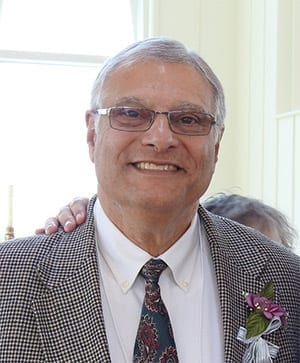
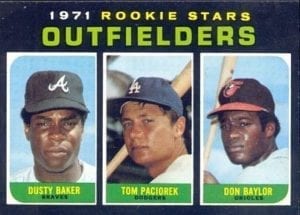
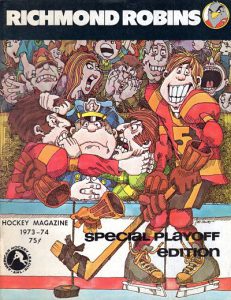
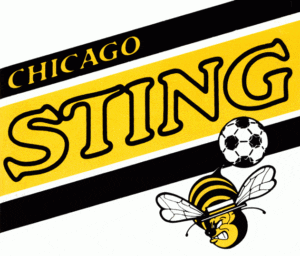


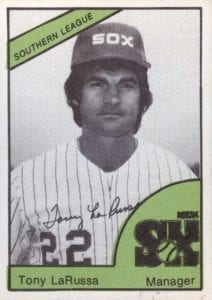
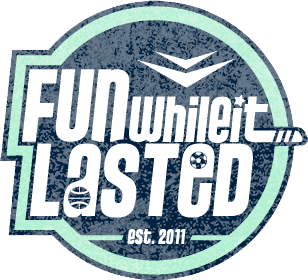
2 Responses
Charlie was always a hustler….Don Vilnius, Cass Tech (Detroit) baseball captain 1965 and 1966. Once he got me a Dick McAuliffe”s (Tigers) bat with a slight crack in the handle, a small screw and tape later a trophy bat. Another time we went to see the Wings play at Olympia. He directed me to drive on the north side of the stadium where we got valet parking service from the Detroit police. That was pretty heady stuff for some kids in High School! Charlie, Hope you are well. Pedro says “Hi” too.
My only experience with Charlie was when he sent me to Puebla Mexico to play for the Los Angeles De Puebla. Believe it or not, I absolutely loved it. Wasn’t sure what to expect but it was a ton of fun….
Thanks for the experience Charlie